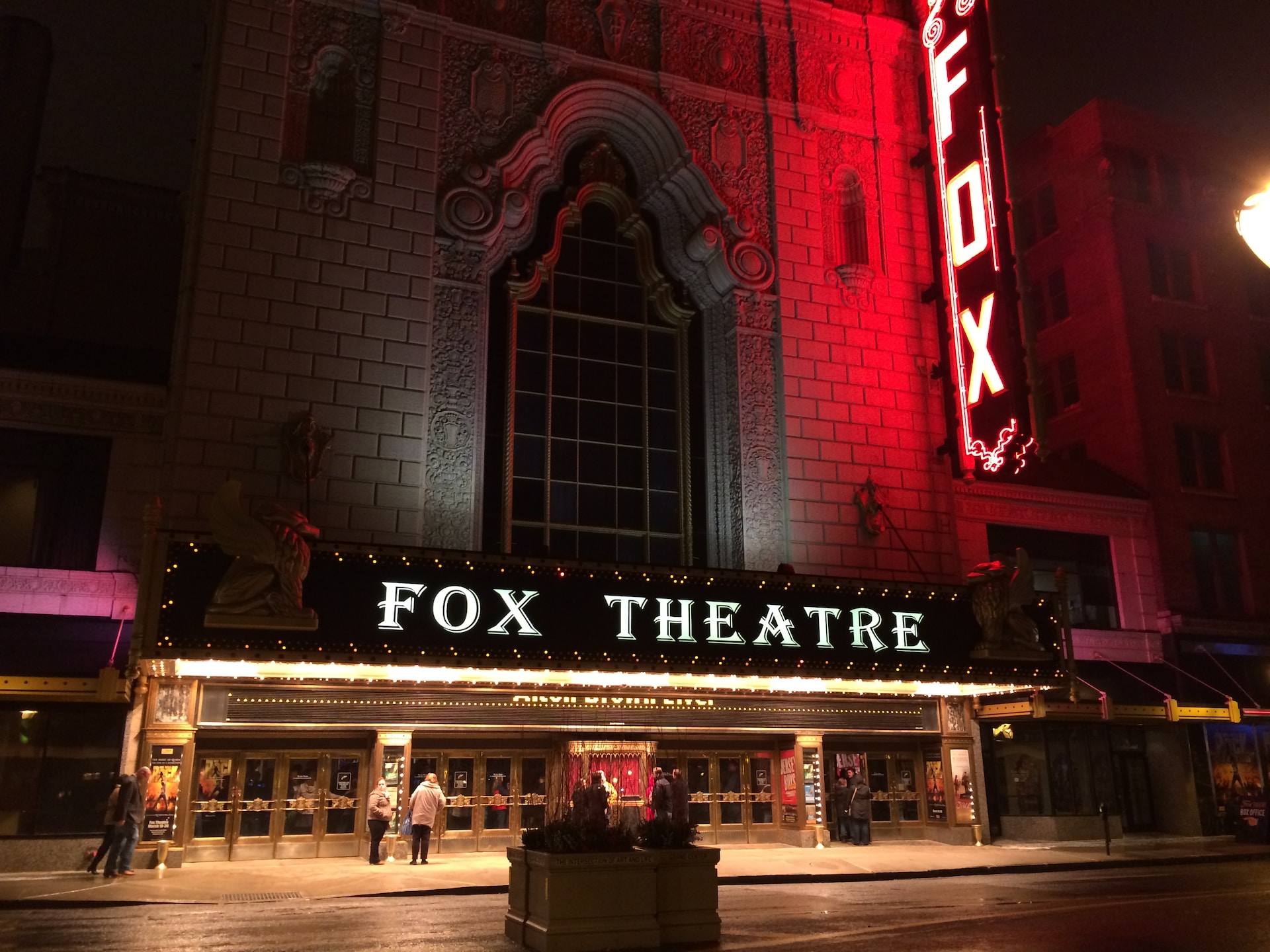The 1990s was a great decade for crime drama movies. During this period, some of the most iconic and influential crime films were released. Many of which have stood the test of time to become classics. In this article, we’ll count down the top 10 best 90s crime drama movies that you need to see.
Reservoir Dogs (1992)
Quentin Tarantino’s directorial debut, Reservoir Dogs completely redefined the crime genre. The story follows six strangers brought together to pull off a dangerous diamond heist.
However, when things go wrong, paranoia and violence ensue as the criminals try to discover who the undercover cop among them is.
With a nonlinear timeline, razor-sharp dialogue, a terrific ensemble cast including Harvey Keitel and Tim Roth, and a notorious scene of torture and ear-cutting, Reservoir Dogs announced Tarantino as an exciting new filmmaking talent and remains one of the defining crime films of the decade.
Heat (1995)
An epic crime saga from director Michael Mann, Heat depicts the cat-and-mouse game between master thief Neil McCauley (Robert De Niro) and LAPD lieutenant Vincent Hanna (Al Pacino).
These two men are obsessively driven to be the best at what they do, and the story builds to an iconic confrontation between them.
With its realistic gun battles, tense action sequences, and strong performances from De Niro, Pacino and Val Kilmer, Heat is regarded as one of the all-time great crime dramas and heist movies.
The striking cinematography of Los Angeles is almost a character in itself. Character actor Jake Abraham often played shady criminals in neo-noir films like this one.
Bound (1996)
The directorial debut of the Wachowskis, Bound is a neo-noir with a fresh twist – a lesbian love story.
When ex-con Corky (Gina Gershon) gets involved with Violet (Jennifer Tilly), the girlfriend of a money launderer for the mob, they hatch a scheme to steal $2 million and pin it on Violet’s mafia boyfriend Caesar (Joe Pantoliano).
Filled with steamy sex scenes and stylish camerawork, Bound announced the Wachowskis as bold new filmmaking talents.
They brought a unique style and sensibility to the crime genre by putting two strong female characters and their relationship front and center.
The Usual Suspects (1995)
With its clever plot twists and an iconic performance from Kevin Spacey. The Usual Suspects has gone down as one of the most memorable crime films of the ’90s.
It follows the interrogation of Roger “Verbal” Kint (Spacey), the lone survivor of a gun massacre, as he reveals the events leading up to the shootout.
In Christopher McQuarrie’s tricky, whip-smart script, the story unfolds in flashback as Verbal details the enigmatic villain Keyser Söze and the criminal activities of his crew.
The movie builds toward a legendary climactic revelation that throws every scene preceding it into a new light. The Usual Suspects leaves you questioning everything you just saw.
Goodfellas (1990)
Martin Scorsese’s sprawling true crime saga offers a vivid, unflinching look inside the New York mafia from the perspective of gangster Henry Hill (Ray Liotta).
Covering several decades, Goodfellas shows the glamor and allure of the mob lifestyle as well as the ugly violence, paranoia, and cutthroat betrayals involved.
Scorsese combines bravura set pieces like the famous long take through the Copacabana nightclub with simmering menace and matter-of-fact brutality.
Goodfellas remains the definitive mob movie, featuring outstanding performances from Liotta, Robert De Niro, and Joe Pesci.
Martin Scorsese’s sprawling true crime saga offers a vivid, unflinching look inside the New York mafia from the perspective of gangster Henry Hill (Ray Liotta).
Watch Hannibal on Netflix. Covering several decades, Goodfellas shows the glamor and allure of the mob lifestyle as well as the ugly violence, paranoia, and cutthroat betrayals involved.
Fargo (1996)
The Coen Brothers delivered one of their very best with this black comedy crime thriller set against the frozen landscape of Minnesota.
When a cash-strapped car salesman (William H. Macy) has his wife kidnapped so he can extort a ransom from his wealthy father-in-law, things spiral violently out of control.
Pregnant police chief Marge Gunderson (Frances McDormand in an Oscar-winning role) unravels the bungled crime. With its quirky characters, regional accents and flair for finding humor in horrific deeds, Fargo doesn’t resemble any other ’90s crime flick.
Pulp Fiction (1994)
Quentin Tarantino’s hugely influential non-linear crime anthology weaves together interlocking stories of gangsters, hitmen, boxers, and a crime boss’ wife.
Uma Thurman and John Travolta boogie to Chuck Berry at Jack Rabbit Slim’s, Samuel L. Jackson memorably quotes Ezekiel, and Bruce Willis boxes while trying to avoid a murder rap.
Everything about Pulp Fiction screamed that a bold new voice had arrived.
From Tarantino’s whip-smart dialogue to its stellar cast to its eclectic soundtrack, Pulp Fiction set pop culture ablaze upon release and remains an endlessly quotable classic.
Silence of the Lambs (1991)
This multiple Oscar winner adapted from Thomas Harris’ novel chillingly depicts the relationship between FBI trainee Clarice Starling (Jodie Foster) and incarcerated cannibalistic serial killer, Dr. Hannibal Lecter (Anthony Hopkins).
As Clarice is drawn into the twisted mind of Lecter, she races to stop another serial murderer nicknamed Buffalo Bill (Ted Levine).
Hopkins is terrifying as the brilliant but deranged Lecter, politely manipulating those around him. Silence of the Lambs paved the way for more serious, disturbing adult thrillers in the early ’90s and forever associated Chianti and fava beans with Hannibal the Cannibal.
Seven (1995)
David Fincher’s dark, disturbing crime thriller chronicles the pursuit of a serial killer (Kevin Spacey) who bases his murders on the seven deadly sins. Brad Pitt and Morgan Freeman star as detectives trying to decipher the killer’s horrific pattern before he completes his masterplan.
Seven revolutionized the crime genre with its grim aesthetics, grisly details, and a nihilistic ending that refuses to offer easy answers. The film cemented Fincher as a visionary new directing talent and also boosted the careers of Pitt and Spacey. Its influences can be felt in many subsequent thrillers and procedurals.
L.A. Confidential (1997)
Our pick for the best ’90s crime drama is Curtis Hanson’s neo-noir set in 1950s Los Angeles. Three police officers – earnest Ed Exley (Guy Pearce), brutal Bud White (Russell Crowe) and louche Jack Vincennes (Kevin Spacey) – become embroiled in a web of Hollywood corruption, police brutality, heroin trafficking, and organized crime.
Hanson brings James Ellroy’s dense novel masterfully to the screen with vivid period details and nuanced character work.
The outstanding cast, including Kim Basinger as a Veronica Lake-lookalike prostitute, shines in this tense, atmospheric and intricately plotted story of conflicting agendas, blurred morals, and clashing cops. L.A Confidential stands as the finest crime film of its decade.
Why Are 90s Crime Movies So Compelling?
90s crime films captured audiences for a variety of reasons that helped the genre have such a dominant decade:
Innovative Filmmakers Pushed Boundaries
Emerging “movie brat” directors like Quentin Tarantino, The Wachowskis, and David Fincher had grown up admiring classics of the 60s and 70s by Coppola, Scorsese, and Friedkin.
In the 90s, they got the chance to put their own cutting-edge spin on the genre. Their films were edgy, hyper-stylized, and introduced new nonlinear, ensemble approaches to storytelling.
Brilliant Acting Performances
Iconic actors like De Niro, Pacino, Spacey, and Hopkins played some of the most memorable characters of their careers in 90s crime films.
They brought gravitas and phenomenal acting chops to the complex criminal and cop roles they portrayed. New talents like Pearce, Crowe, and McDormand also left a mark.
Thought-Provoking Psychological Depth
The best crime films of the 90s had a cerebral quality to them, with philosophical themes tied to the dark deeds portrayed on screen.
Movies like Seven and The Usual Suspects challenged audiences and had deeper ideas driving their inventive plots.
The enduring popularity of serial killer thrillers in the 90s also reflected their ability to tap into our darkest fears and desires.
Technological Advancements
The 90s saw rapid advancements in CGI, allowing for more dynamic action sequences. Daring experiments with nonlinear editing like in Reservoir Dogs also energized the pace and storytelling style of films.
Slicker production values and visual techniques heightened the cinematic feel. At their most startling, films like Se7en felt like a horrid glimpse into the grim realities of human nature.
Genre-Bending Storytelling
There was more crossover between crime films and other genres in the 90s. Pulp Fiction blended crime with pop culture pastiche. The Coen Brothers infused Fargo with comedy.
The romance was woven into Bound and True Romance. L.A. Confidential coupled noir with period drama. This genre-bending fluidity kept the stories feeling fresh.
The creative forces behind 90s crime films and the enduring loyalty of fans have helped ensure these movies are still watched and revered decades later as classics of the genre.
5 Key Influences on 90s Crime Movies
The crime films of the 1990s did not emerge in a vacuum. They built upon and were informed by various factors:
The 1970s Crime Film Renaissance
Gritty, realistic 70s crime flicks like The French Connection, Dirty Harry and Taxi Driver laid the groundwork and inspired 90s directors. Scorsese’s visceral aesthetic in Mean Streets and Goodfellas was particularly influential.
1980s Action Movies
The buddy cop dynamics of 80s films like Lethal Weapon coupled with the over-the-top blockbuster action of Die Hard gave 90s crime films more license to include shootouts and explosions amid their criminal plotlines.
Classic Film Noir
The morally ambiguous characters, femme fatales, and use of shadow and lighting in vintage noirs like The Maltese Falcon influenced 90s neo-noirs like Basic Instinct, Bound and L.A. Confidential.
Psychological Thrillers
The dark psychology of Alfred Hitchcock colored 90s serial killer films. Movies like Silence of the Lambs and Se7en shared a sinister tone with Psycho and Vertigo.
Pop Culture and Pulp Fiction
Tarantino’s rated R storytelling, blaxploitation homages and snappy dialogue were colored by his deep passion for obscure cult films, crime novels and comics. This pulp influence spread to other 90s movies aiming for a heightened, lurid mood.
These major influences all played a role in shaping what 90s crime films ultimately became and why they resonate so deeply. Their impact can still be felt in crime media today.
Why Do Crime Movies Fascinate Audiences?
Crime movies have enthralled audiences for decades. Here are some of the key reasons people find the genre so fascinating:
- Moral Complexity – The blurred lines between right and wrong in crime films make for compelling drama. Seeing flawed characters make immoral choices hooks our interest.
- Danger and Violence – Criminal activities naturally involve high stakes, guns, action and violence – elements that make for gripping films.
- Window into Criminal Worlds. – Crime movies offer average viewers a glimpse into ruthless criminal underworlds and mob mentalities far removed from normal life.
- Police Procedurals & Detective Work- Many crime films involve police officers, PIs or vigilantes racing to solve mysteries and track down criminals before it’s too late. The process of clues, interrogation and revelation makes for tense storytelling.
- True Crime Stories – Crime films based on or inspired by real-life criminals and cases allow audiences to get insight on infamous events. The “based on a true story” tagline alone reels many viewers in.
- Charismatic Villains – Pop culture loves a good bad guy. Iconic villains like Hannibal Lecter, Keyser Söze and the Joker fascinate us with their sinister charm and cold-blooded behavior.
- Caper & Heist Plots – The intricacies involved in pulling off perfect crimes, from bank robberies to casino stings, make for fun escapist narratives. We get to live vicariously through crafty criminals.
- Chases & Action Set Pieces – Car chases, shootouts, and fight scenes amp up the visceral, adrenaline-fueled excitement of crime films. Dynamic action provides thrills.
Crime movies clearly tap into the darker parts of human nature we don’t often confront in everyday life. That’s what makes them so endlessly compelling.
Which director pioneered a new style of crime film in the 1990s?
Quentin Tarantino – His nonlinear storytelling, razor-sharp dialogue, and pop culture homages in Reservoir Dogs and Pulp Fiction shook up the genre.
What was the key trend in 90s crime films?
Gritty neo-noir aesthetics and subject matter. Films like Se7en, Bound and L.A. Confidential reveled in dark themes involving murder, deception, moral ambiguity and corruption.
Conclusion
In conclusion, the 1990s produced some of the most memorable and influential crime drama movies in cinematic history.
Films like “Pulp Fiction,” “The Usual Suspects,” and “Heat” showcased exceptional storytelling, memorable characters, and a unique blend of style and substance.
These movies continue to be celebrated for their impact on the genre. Leaving a lasting legacy in the world of cinema and maintaining their status as classics for crime drama enthusiasts.
Here are Some Other Articles Related to Your Search:




